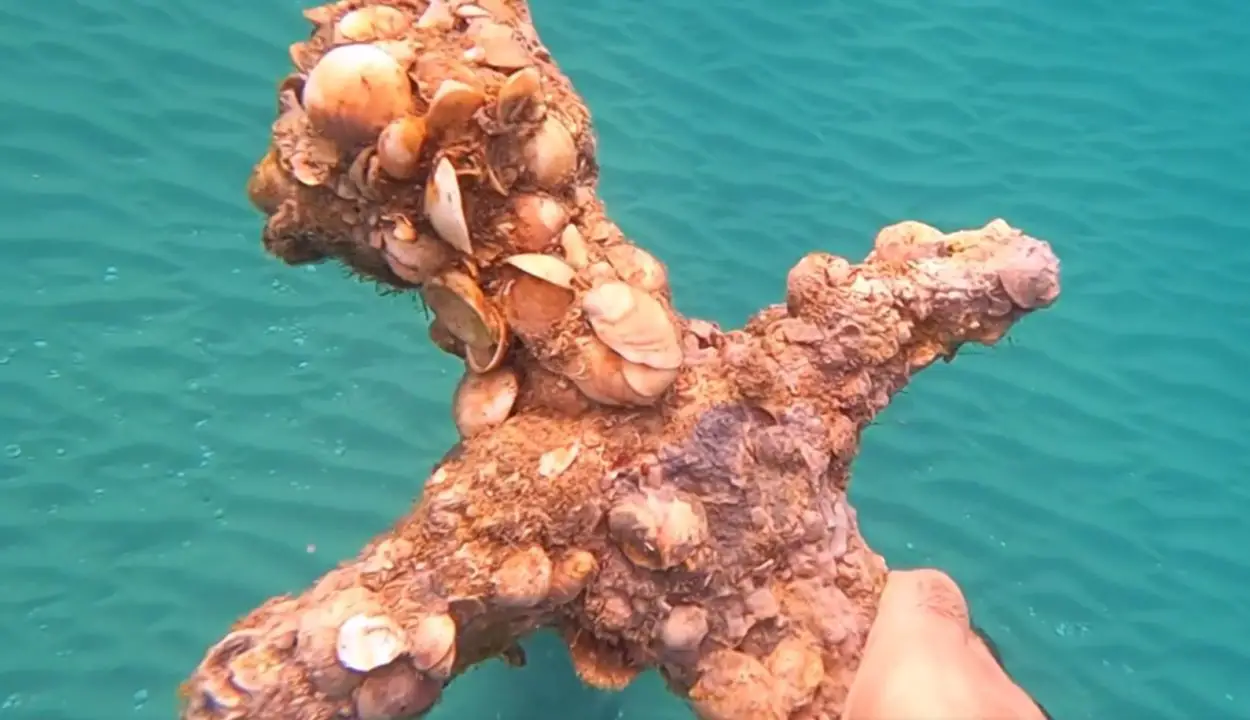A diver swimming off the HaCarmal coast in Haifa, Israel, has discovered a crusader sword dating from 900 years ago.
The discovery was made by Shlomi Katzin whilst he was scuba diving a natural cove near the ancient port city, that the crusaders captured from the Arabs during the early 12th century AD.
The site was a natural anchorage for ships seeking shelter from the elements, that archaeological finds suggest has been actively used since the Late Bronze Age, 4,000 years ago.
Whilst identifying stone and metal anchors on the seabed, Katzin found an encrusted one-metre-long iron sword with a hilt measuring 30 centimetres. Katzin recovered the sword and reported the find to the Israel Antiquities Authority’s Northern District Robbery Prevention Unit inspector.

Nir Distelfeld, Inspector for the Israel Antiquities Authority said: “The iron sword has been preserved in perfect condition and is a beautiful and rare find. It evidently belonged to a Crusader knight. It is exciting to encounter such a personal object, taking you 900 years back in time to a different era, with knights, armour, and swords.”
Israel Antiquities Authority’s general director, Eli Escosido said: “Every ancient artifact that is found helps us piece together the historical puzzle of the Land of Israel. Once the sword has been cleaned and researched in the Israel Antiquities Authority’s laboratories, we will ensure it is displayed to the public.”
Header Image Credit : Israel Antiquities Authority





